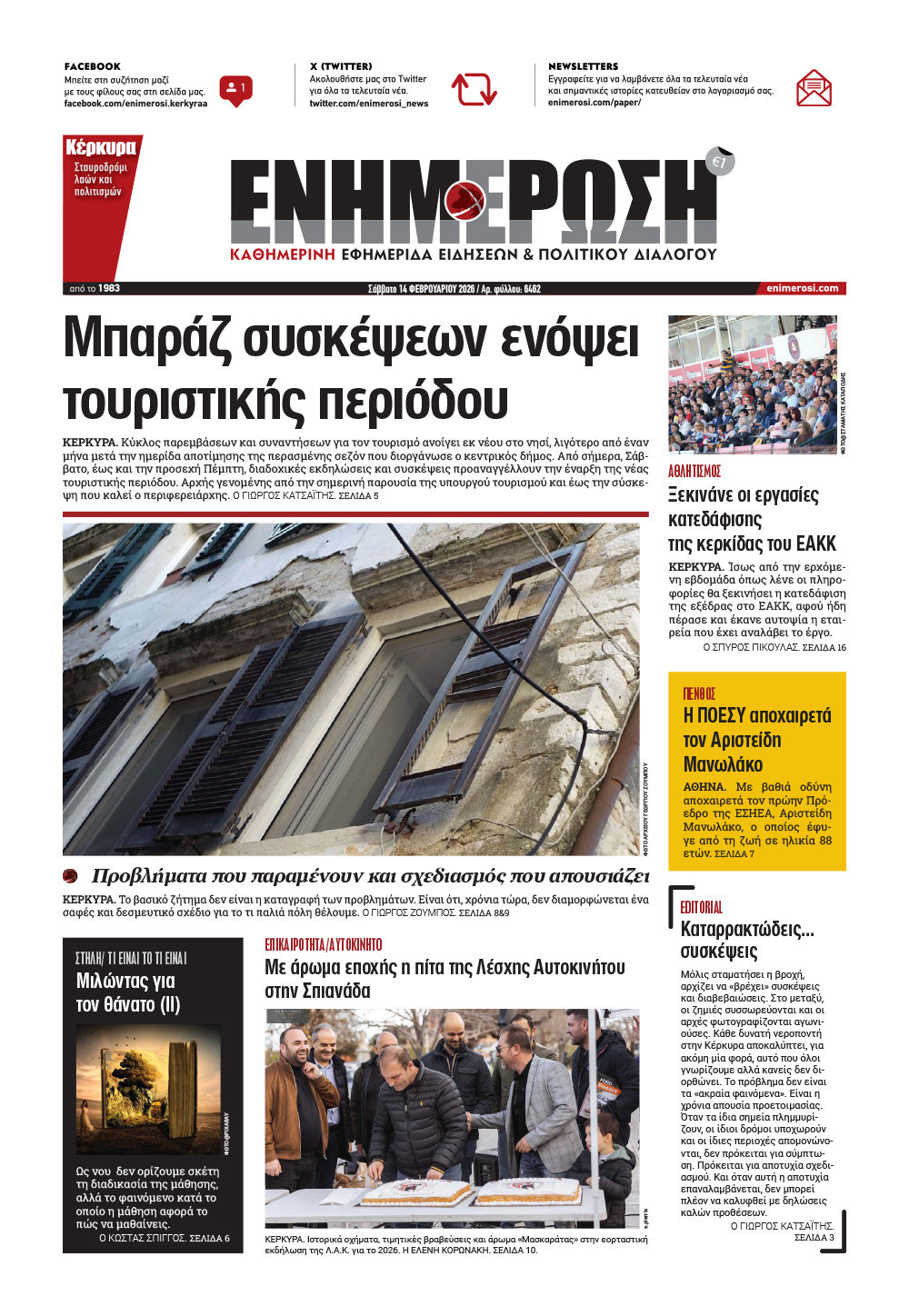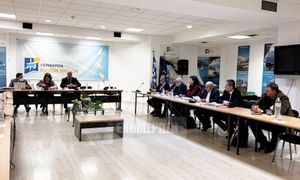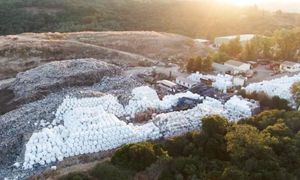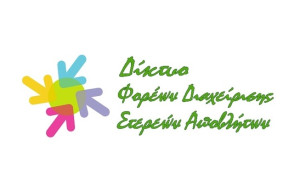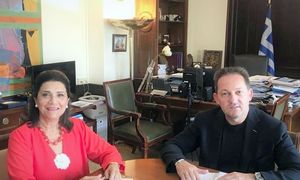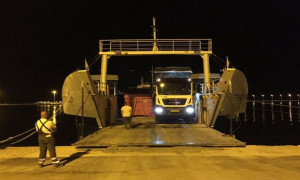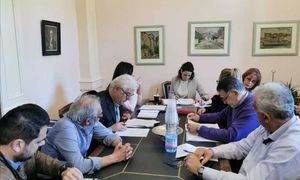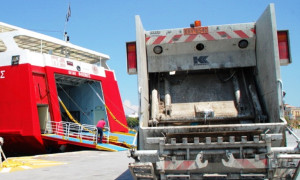FODSA creates Circular Economy Watch Committee
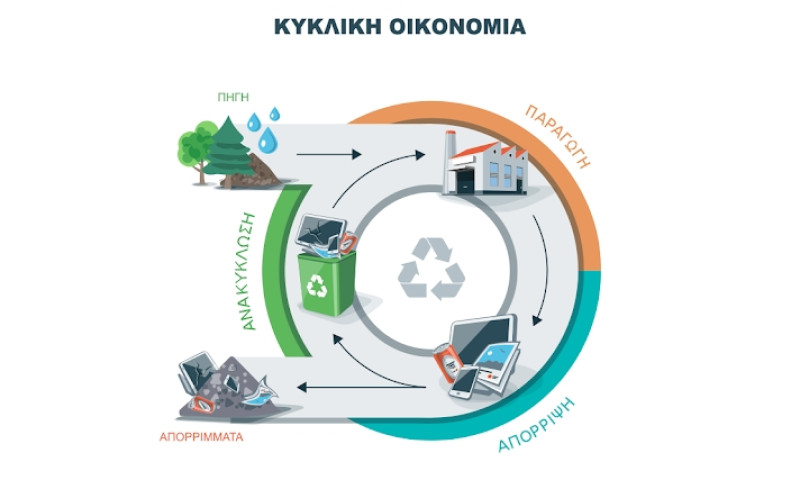
FODSA
31 Jan 2022
/ 20:14
CORFU. Eligible Municipalities will be able to organise their actions in a coordinated and methodical way.
The Corfu Solid Waste Management Organisation (FODSA) is attempting to promote a green growth model through the creation of a Coordinating Structure and a Circular Economy Watch Committee. The issue, which had been discussed at FODSA’s board meeting last December, had been unanimously approved by all members, who thought it is necessary to shift from the existing linear economic model of production, consumption and disposal to a more circular economy.
FODSA General Director Vassilis Analitis emphasised that, in order to implement the principles of circular economy, it is necessary to identify the existing situation, emphasing on identifying the problems, as well as prioritising the actions towards the transition to circularity. A comprehensive strategic plan is then required, which will be a concrete action plan with specific steps and targets to make the vision of the circular economy a reality.
“An action plan which will promote waste prevention, reuse, recycling, zero landfill, reduction of food waste, rational use of water, ecodesign, sustainable production and responsible consumption, green public procurement, energy saving and urban mobility,” he pointed out.
Three actions
The following three actions are being proposed:
1) Inventory of the current situation and setting of targets towards the transition to circularity
2) The preparation of a costed action plan – roadmap for the circular economy at a municipal and regional level
3) The creation of a digital repository – helpdesk of technical data related to the implementation of circular economy actions at local level.
Eligible Municipalities will be able to use the abovementioned and organise their actions in a coordinated and methodical way, while at the same time they will be ready to submit proposals and apply for funding from EU and/or national resources.
A key role
The local authorities, the Region and the Municipalities have to play a key role through initiatives to prepare and implement waste reduction strategies, to strengthen separate collection and improve recycling, and they are invited to join and participate in FODSA's initiative.
FODSA General Director Vassilis Analitis emphasised that, in order to implement the principles of circular economy, it is necessary to identify the existing situation, emphasing on identifying the problems, as well as prioritising the actions towards the transition to circularity. A comprehensive strategic plan is then required, which will be a concrete action plan with specific steps and targets to make the vision of the circular economy a reality.
“An action plan which will promote waste prevention, reuse, recycling, zero landfill, reduction of food waste, rational use of water, ecodesign, sustainable production and responsible consumption, green public procurement, energy saving and urban mobility,” he pointed out.
Three actions
The following three actions are being proposed:
1) Inventory of the current situation and setting of targets towards the transition to circularity
2) The preparation of a costed action plan – roadmap for the circular economy at a municipal and regional level
3) The creation of a digital repository – helpdesk of technical data related to the implementation of circular economy actions at local level.
Eligible Municipalities will be able to use the abovementioned and organise their actions in a coordinated and methodical way, while at the same time they will be ready to submit proposals and apply for funding from EU and/or national resources.
A key role
The local authorities, the Region and the Municipalities have to play a key role through initiatives to prepare and implement waste reduction strategies, to strengthen separate collection and improve recycling, and they are invited to join and participate in FODSA's initiative.



